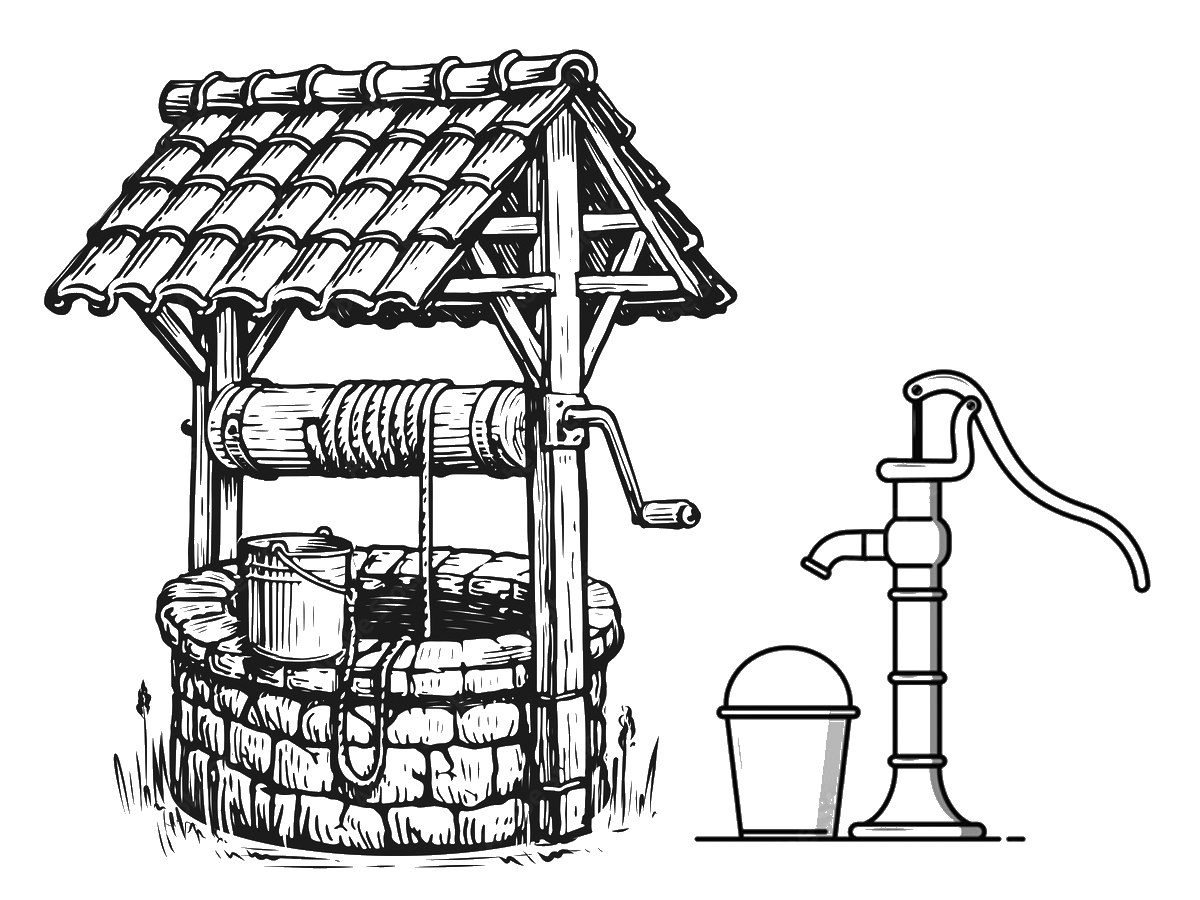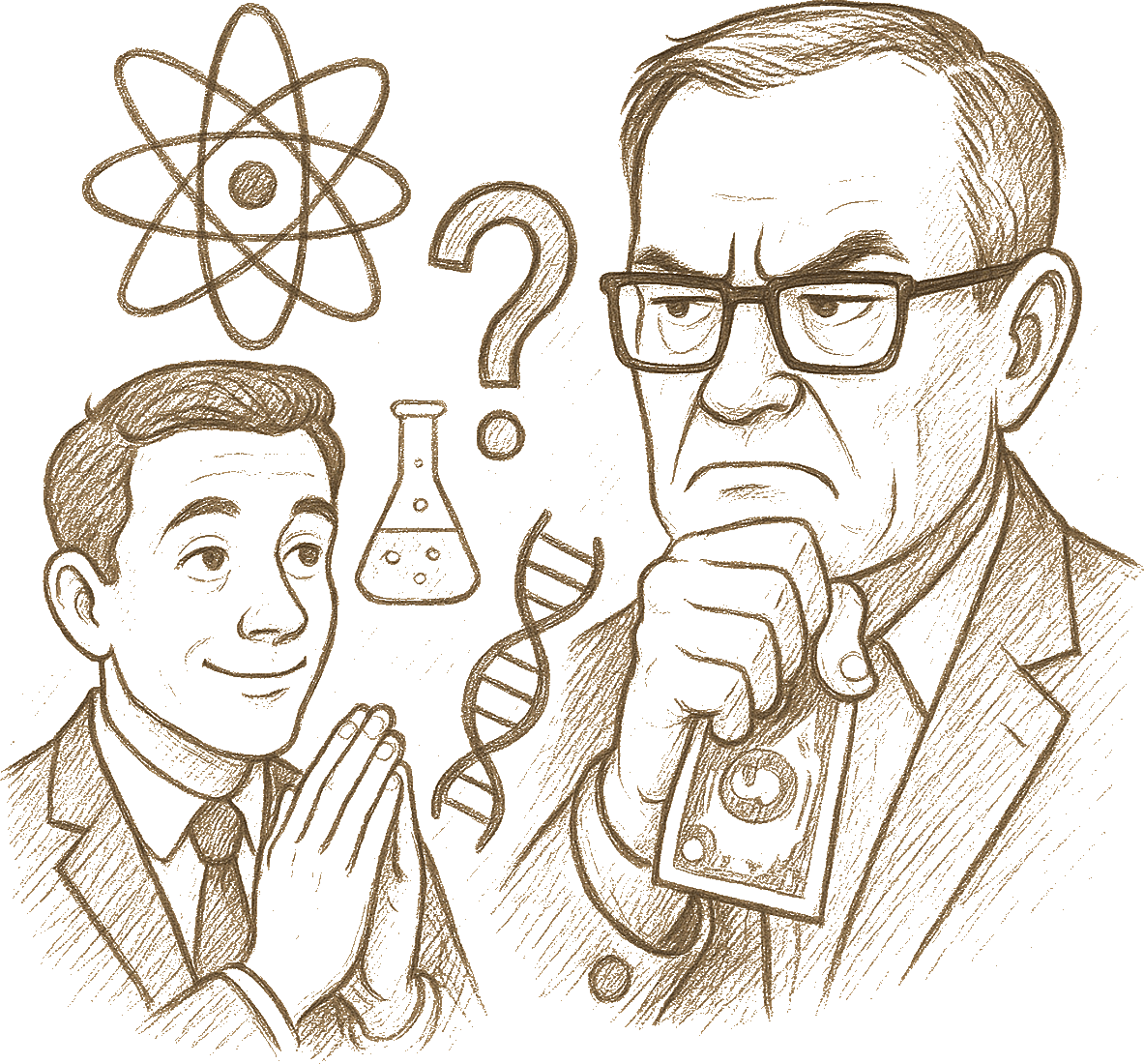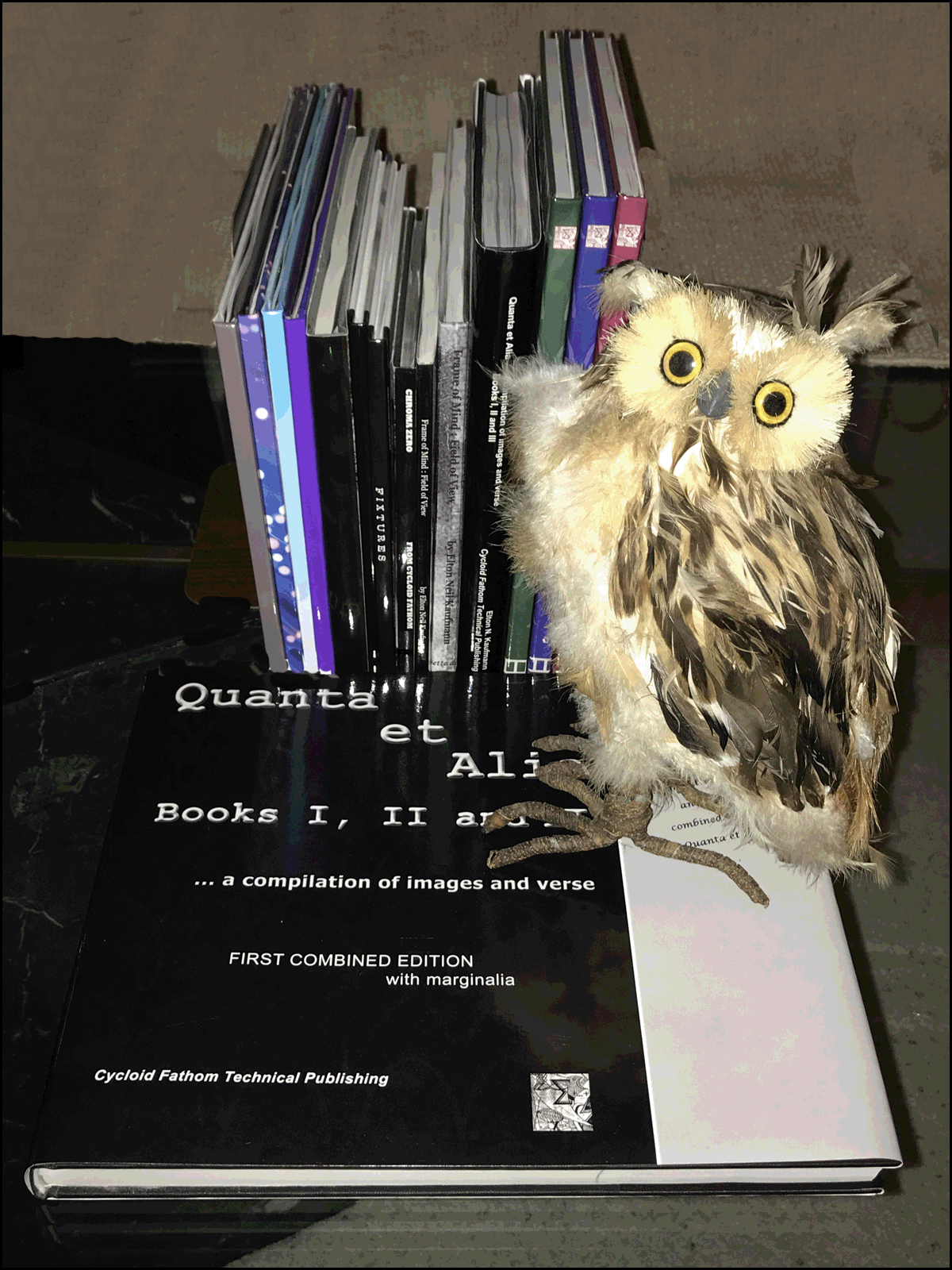A well drilled to find water, the sustenance of life, is found wherever the water table is reachable, especially in arid regions. We guard against the water being brackish and against any attempts to poison the well. The effort to pump the water to the surface or to haul roped buckets up from subterranean depths is well worth it.
Many live near fresh water lakes or streams. Drilling is not necessary there, but the bucket still is. In or around the modern city, we dispense with the bucket as well. We turn the tap and water that has been purified at a tax-supported treatment plant comes forth. Lazy and spoiled are we who benefit from that.
The Earth’s climate affords the occasional and dependable precipitation that we can collect as it falls or just let it replenish the water table for extraction later. As Shakespear’s Portia noted, "The quality of mercy is not strain'd; It droppeth as the gentle rain from heaven / Upon the place beneath."[1] Mercy is a topic we’ll defer, but the way rain is characterized as both gentle and originating in heaven suits today’s topic well.
Periods of drought threaten many aspects of our lives and planet.[2] At the other extreme, flooding also has devastating effects.[3] More than one can manage or less than one needs mitigates in favor of staying in between those two limits.
Wisdom’s well
Just as water is essential for physical life, knowledge is essential for intellectual well-being. I don’t mean well-being of the “intelligentsia” or any other elite group. I mean for society as a whole, relying on what has been learned by predecessors and contemporaries and from which more knowledge can be built. We learn, we deposit what we learn into a figurative well, a reservoir of knowledge, and leave it there for others to extract and use. From deciphering ancient scripts to thumbing through encyclopedia to browsing the world wide web with evermore sophisticated search engines, we excavate what is known, but more importantly, we then contribute new content never anticipated by those who next search the well. We can simplistically parse knowledge into two categories: (a) That which enriches our understanding of history and culture for general edification and perhaps for guidance toward an improved psychosocial future, and (b) that which forms the basis for technological innovation and scientific discovery. My focus here is on the latter.
Easily taken for granted and assumed robust, the reservoir of knowledge is actually fragile in several respects. Some knowledge withdrawn from the well turns out to be brackish. It is faulty in some way. It may have been deposited prematurely before being fully vetted. Or worse, some topics in the well may have been poisoned by charlatans who profit from the fame of faux discovery. Mechanisms exist to police deposits into the well and to minimize contamination. These include peer review of journal publications, expert supervision of researchers, and insistence on reproducibility of experimental results and theoretical computations and conclusions. Everyone in the fields of science have been educated and trained, not only in their respective disciplines, but in the integrity of the R&D process itself.
It comes as no surprise that producing the knowledge and policing the well requires funds. Several sources of support include foundations, corporations,* university endowments, and governments. The relative importance of each source depends on the category of knowledge deposited in the well and of its use when pulled from the well. Medical research is far from astrophysics which is far from oceanography which is far from climate.
Our water analogy holds when considering the need for a continuing fresh supply and when worrying about accessibility, but it fails in that removing a “bucket” of knowledge is just a copying exercise with the original remaining behind, waiting for its next consumer. As long as the physical containers and the veracity of their content, the walls of the well, remain intact, the sum total of man’s knowledge never lessens.
The risks
Fueling the fabric: The root cause of all risks to the well is loss of adequate support. From private patronage of the work of Aristotle, Galileo, Pythagoras, Copernicus, Kepler, and others of ancient times to the programs of major government funding agencies and ministries of today, preservation of what has been learned and sustaining the flow of what is being and will be learned has depended critically on that support.
There are antagonists. The most simplistic rationale for throttling knowledge creation is short-sighted fiscal austerity. The long-term price of short-term savings that mortgage the future of innovation is far higher than the meager savings of myopic frugality. There are also anti-science skeptics, idealogues, and deniers who, for cultural or religious reasons, deny and oppose research into such topics as climate change, evolution of the species, the Big Bang, women’s health, vaccines, and others. No ropes and buckets, no pumps, and no taps with which to draw the water of wisdom, and a “water” table sinking until it’s out of reach, are the inevitable long-term consequences of withering support.
Cope with contaminants: When knowledge seekers encounter cherry-picking of evidence, reliance on fake experts, use of logical fallacies, and setting intentionally impossible goals, it’s time to triple efforts to separate the wheat from the chaff.[4] Insulate the well from these fallacious deposits and, if any have leaked through, purge them with the disinfectant of evidence-based rejoinders. The scientific method was addressed here in two prior posts: Science, 1 April 2024, and Theory and Experiment, 14 October 2024.
Moving on
The fictional character Palmer Joss in the movie Contact (1997) spoke the prescient line, “The physical universe has this really annoying way of being what it is, and not what you want it to be.”[5] To discover what it is in all its miraculous diversity and to use that insight to advance the human condition, our well must be healthy, well fed, and mined without interruption. Coincidentally, also in 1997, this author originally wrote about innovation and the well of knowledge.[6]
* Only large corporations that can afford exploratory R&D without sinking their bottom line can fund curiosity-driven knowledge accumulation, the rest relies on an enlightened government. No corporations are shy about using all the knowledge they can harvest from the reservoir for advanced development of potentially profit-making products for the marketplace.
Credits: Well & pump silhouettes and monitor/keyboard image from Adobe Stock #s 514082417, 598480347, and 963318087, resp.
“Brass Rings of Knowledge” from the author’s collection.
“Skeptic” image from openAI.com’s DALL-E image generator.
[1] https://en.wikipedia.org/wiki/The_quality_of_mercy.
[2] https://www.rescue.org/article/what-drought-causes-impact-countries-most-affected.
[3] https://www.floodinfo.ie/about_frm/impacts_of_flooding.
[4] https://en.wikipedia.org/wiki/Matthew_3:12.
[5] Contact, Robert Zemeckis (Warner Bros. and South Side Amusement Company, 1997)
[6] Elton N. Kaufmann, “The innovation enigma,” Materials Chemistry and Physics, Vol. 50 No. 2, September 1997, pgs. 120-123.
Nota Bene: Others may ruminate differently. But be warned: In my case, seeing or hearing something quite trivial -- a saying, a store clerk’s mannerisms, or bad grammar on a food product’s label – triggers a stream-of-consciousness extrapolation toward grander notions and generalizations. That is what often happens in these posts. ADDENDUM: Those subscribers who have been here for a while will have noticed that at times Ruminations has veered into diatribes. I make no apology. I just want my readers to know that it’s quite intentional. When events come close to making the ‘blood boil,’ that discontent bubbles up here.
Disclaimer: Any and all opinions expressed here are my own at the time of writing with no expectation that they will hold beyond my next review of this article. Opinions are like a river, winding hither and yon, encountering obstacles and rapids, and suffering turbulent mixing of silts from its depths and detritus from its banks. But just as a river has its clear headwaters and a fertile delta, so do opinions, notwithstanding any intervening missteps and uncertainties.
Reminder: You can visit the Cycloid Fathom Technical Publishing website at cycloid-fathom.com and the gallery at cycloid-fathom.com/gallery.
Forthcoming posts (unless life intervenes)
Up and Comers
…A New Hope or The Last Hope
16 June 2025
The Interview
…A trip through dreamland
23 June 2025
Scale
…or sizing everything up
30 June 2025








